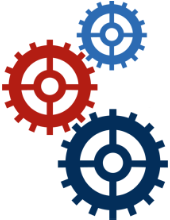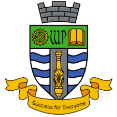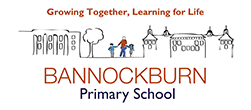History
History
Head of Department: Mrs. B. Swensen bswensen@woolwichpolyboys.co.uk
Course Content:
Our history curriculum uses enquiry questions in every lesson to help you to build knowledge about the past across different times and countries. By following our course, you will develop disciplinary thinking of the principles and concepts that have shaped societies in the past and how this has shaped our modern life. We aim to support all children. Our lessons are pitched so that all pupils can get an early sense of success by learning and practicing the exam skills from questions that gradually increase with difficulties and marks. Where possible, activities will either be modelled, or sample answers will be given after work is complete so that pupils can develop a conception of good historical writing that will lead to success in the final exam.
Exam board
AQA
Course Content
The GCSE History content comprises the following elements:
- one period study
- one thematic study
- one wider world depth study
- one British depth study including the historic environment.
Paper 1: 2 hours, 84 marks, 50% of GCSE
Section A: Period study
- AD. America, 1920–1973: Opportunity and inequality
Section B: Wider world depth studies
- BC. Conflict and tension between East and West, 1945–1972
Paper 2: 2 hours, 84 marks, 50% of GCSE
Section A: Thematic study
- AA. Britain: Health and the people: c1000 to the present day
Section B: British depth studies including the historic environment
- BC. Elizabethan England, c1568–1603
Assessment:
- There is no coursework at KS4.
- Two written examinations at the end of course (Externally marked)
Equipment:
Positive mental attitude, pen, pencil, ruler, folder.
Future careers/university courses.
Academic librarian, Archaeologist, Broadcast journalist, Civil Service administrator, Editorial assistant, Human resources officer, Information officer, Marketing executive, Policy officer, Politician's assistant, Solicitor, etc.
Support Materials & Useful Links
KS3 Materials
- Revision booklets: available at the school
- BBC British History
- The Royal Institution
KS4 Materials
- The History PixlApp (students will be given logins for this)
- Historical Association (student login will be provided)
- WJEC Eduqas GCSE in History Specification
Department Information
Any specialist equipment required?
-
History textbooks (America & Tudors)
-
Highlighter pens
Enrichment opportunities
-
Conferences
-
Visit to the House of Parliament
Clubs or Interventions
-
Interventions on Wednesday/Thursday after school
Future careers/university courses
-
Academic librarian, Archaeologist, Broadcast journalist, Civil Service administrator, Editorial assistant, Human resources officer, Information officer, Marketing executive, Policy officer, Politician's assistant, Solicitor. Etc.
Social, Moral, Social, Cultural (SMSC) and British Values:
Students are taught how to develop an understanding of the motivation, beliefs and principles of individuals, groups or movements. They investigate the consequences of actions and decisions made and explore and debate different interpretations of the past, recognising how they reflect different viewpoints and value systems. Explore different historical eras and the causes of social, economic and political change. Investigate the moral justification for actions and events in the past. Develop an understanding of the heritage of other societies. Specifically:
We promote spiritual development by:
-
Considering how things would be different if the course of events had been different; for example, what difference would it have made if the Normans had not been successful in 1066?
-
Looking at local history and investigating the reasons why there is a landmark, building or museum.
-
Speculating about how we mark important events in history and the people who shaped them.
We promote moral development by:
-
Bias-looking at actions and events in history and deciding if they are wrong or right.
-
Focus on settlement, emigration, immigration and invasion opportunities for debate.
-
Develop awareness of and respect for the contribution of individuals/groups regardless of race/gender/disability –Slavery, Celebrations of Black history, Study of the lives of individuals such as, Martin Luther King and others.
We promote social development by:
-
Consideration of how the world has been formed by past actions-using discussion/drama
-
Comparisons of how the role of women has changed.
-
Comparisons of ideas and beliefs of early civilisations.
-
Develop presentation skills and have confidence to share an area of research-listen attentively to others.
-
Going beyond the facts and asking students to make hypotheses and pose questions such as ‘what if…?’ ‘What would have turned a tragedy into a triumph?’
We promote cultural development by...:
-
Visit museums, Theatre/entertainments/writings of each era
-
Appreciation of rituals particular to different people-mummification, Viking burial practises, the culture of make do and mend /dig for victory, changing role of women-how servants/slaves were treated.
-
Celebration of significant national events e.g. Remembrance Day
British values:
-
Comparisons/discussions about how each civilisation ran its society compared with ours.
-
In each society, close examination of the rule of law.
-
Democracy
-
Tolerance of religious beliefs and faiths
-
Individual liberties
-
Mutual respect





